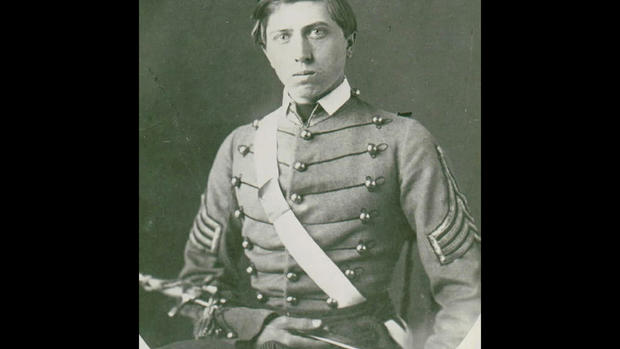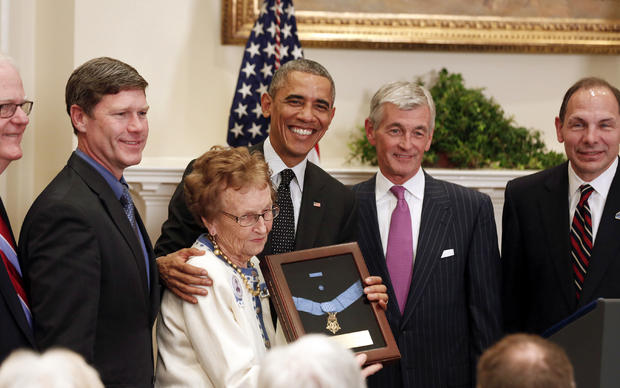151 years later, hero receives Medal of Honor
GETTYSBURG, Penn. - When President Lincoln dedicated the cemetery at Gettysburg, he said the world could not forget the actions of the brave men who fought there.
On Thursday, President Obama remembered the sacrifice of one of those men, awarding him the Medal of Honor.
If you've ever stood on Cemetery Ridge and imagined 11,000 Confederate soldiers charging straight at you. The commander of a Union artillery battery, First Lieutenant Alonzo Cushing, may already be a hero to you.
"Every last Confederate gun in the world is aimed right towards his battery," said Park Ranger John Heiser. "And this young, 22-year-old, round-faced young man is gonna hold his men to their job that day."
He certainly is a hero to Heiser and to Army historian Mark Bradley who did the research to justify awarding Cushing the Medal of Honor 151 years later.
"In my opinion this is rectifying an omission," said Bradley.
Cushing had fought at Bull Run, Antietam, and Chancellorsville. Then came Gettysburg, the decisive battle of the Civil War.
"He doesn't know it yet," said Bradley. "But he's gonna be ground zero of Pickett's Charge."
Pickett's Charge -- the all-out Confederate assault on the Union line. The daring of Robert E. Lee met the will of Abraham Lincoln and the courage of Alonzo Cushing.
For an hour and a half, Confederate artillery bombarded the Union line.
"During that barrage, Cushing's battery gets pounded as badly as anybody does on this line," said Bradley. "It looks like a slaughter house. [He] receives a severe wound in his shoulder and a wound in his groin. Cushing started vomiting he was in such intense pain."
His commanders told him to fall back. Instead, he did the opposite.
"He pushed his two remaining guns down to the stone wall among the infantry to wait for that infantry attack, said Heiser.
Forward rather than back.
"He was gonna show those rebels that all the cannonades in the world, all the iron thrown at him, is not gonna drive him off this ridge," said Heiser.
The rebel charge was only a hundred yards away.
Heiser continues: "He remarked to the sergeant next to him, 'I'll give them one more shot.' The gun goes off, and a second later Cushing is felled by a bullet through the mouth and kills him instantly."
But the Union line held there at the wall. Lee's army fell back never to threaten the North again.
"This is the high water mark of the Confederacy," said Bradley. And Cushing was there, sacrificing himself for his country.
Perhaps it was worth waiting all this time to see the Medal of Honor awarded by America's first black president to a soldier who helped set the slaves on the long march toward freedom.
Editor's note: An earlier version of this story spelled John Heiser's name incorrectly.

